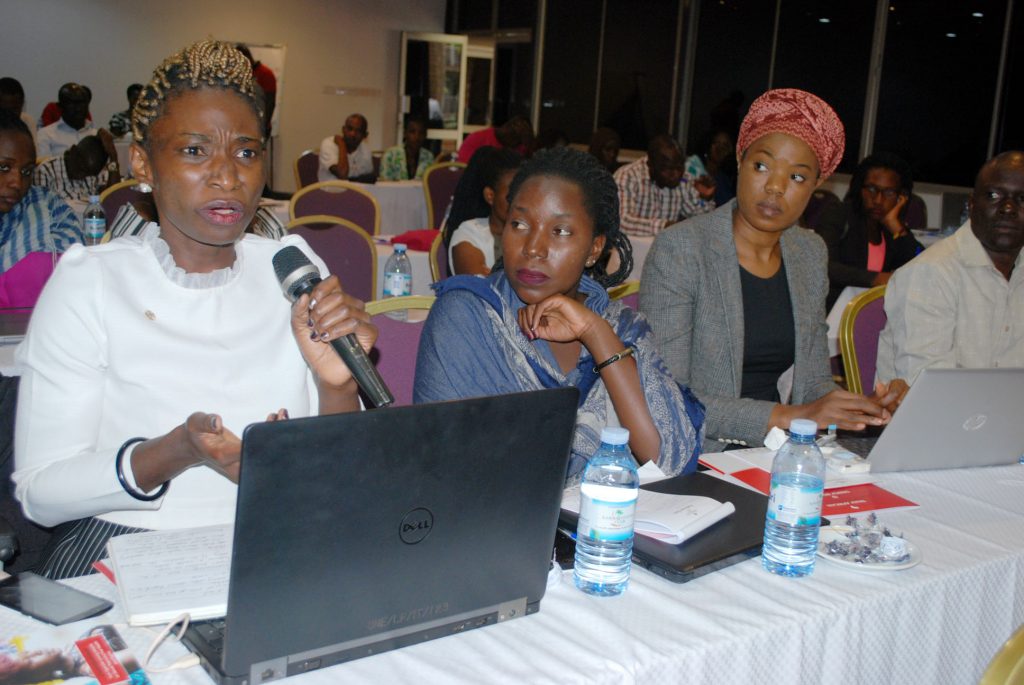Bold commitments have been made by governments across the African region in a number of international and regional declarations, conventions and agendas, which point to the important shift in safe guarding all rights, including the sexual and reproductive health and rights (SRHR) for young people. These provide clear guidance to countries in enacting laws, policies, charters that affect adolescent SRHR.
On February 11th , 2019 Amref Health Africa together with other partners under the Health Systems Advocacy program ie HEPs –Uganda and ACHEST convened an inter generational dialogue that brought together different stakeholders include young people, youth leaders , religious leaders, local government , Ministry of Health officials and like minded organizations in Health Advocacy for SRH.
During the dialogue it was clear in the discussions that the ability to achieve healthy and empowered adolescents and young people hinges on a supportive legal and policy environment which will ensure that every person can exercise their fundamental right to SRH. Many young people and adolescents face barriers of exercising their rights to SRH information and care. Many are forced into marriage and are vulnerable to unintended pregnancies, risky child birth, unsafe abortions, HIV and sexually transmitted diseases.

Victoria Nalule the Executive Director of Tunaweza Foundation; addressing participants during the Inter generational dialogue at Kabira Country club recently.
Bob Owinyi the Youth Councilor Soroti District shared that even those who are equipped with the right information may not access the health services they need to protect themselves due to the stigma surrounding young people’s request for SRH information from the health facilities mainly elderly health workers question one’s integrity.
During the dialogue the Deputy Head of mission cooperation at the Netherlands Embassy , Joris Van Bommel, commended the fact that the SRHR agenda is being pushed by more than just the NGOs. It has brought together the key stakeholder who are the youth through their representatives, this nature of dialogue creates greater avenues to address patent sexual reproductive health issues concerning the youth since they are the future.
Bommel said his government will increase support to Uganda on sexual and reproductive health services and hopes that this dialogue does not end . it has to be a continues discussion that triggers the need to put SRHR as a priority on the Leadership agendas because the youth and young people are the majority population and therefore their needs must be paramount. He signed on to the pledge board which said “ Increase the involvement of youth in all stages of program and policy making – from designing , planning, implementation , monitoring and evaluation . This will allow youth to fully explore their potential and innovation;
As the youth presented their communique’ they called upon the government of Uganda to ;
- Publish the Adolescent clients’ charter and make it accessible to all in the fifty three gazette languages spoken in Uganda.
- Improve access to life skills/ sexuality education – use of trained teachers and peer educators.
- Install youth friendly health services and provide appropriate training to the service providers handling adolescents.
- Expedite completion of key polices, for example,, the national SRHR policy 2018 that is still in draft.
- Involve young people in policy making processes up to the grass root as the urban and rural youth seem to have different perceptions regarding SRH services and rights.
- Develop enabling policies and making them practical by resourcing for implementation of the policies.
- Enhance a social and cultural environment that upholds the SRHR of young people, for example , address cultural barriers.
- Include an SRHR information pack in curricula for learners in higher institutions especially in their entry year
- Provide equal and quality services of SRH for youth living with disabilities as it is their health right too.
#Youth4UHC https://t.co/cVY4K4gN1N
— Amref Health Africa (@Amref_Uganda) February 18, 2019
